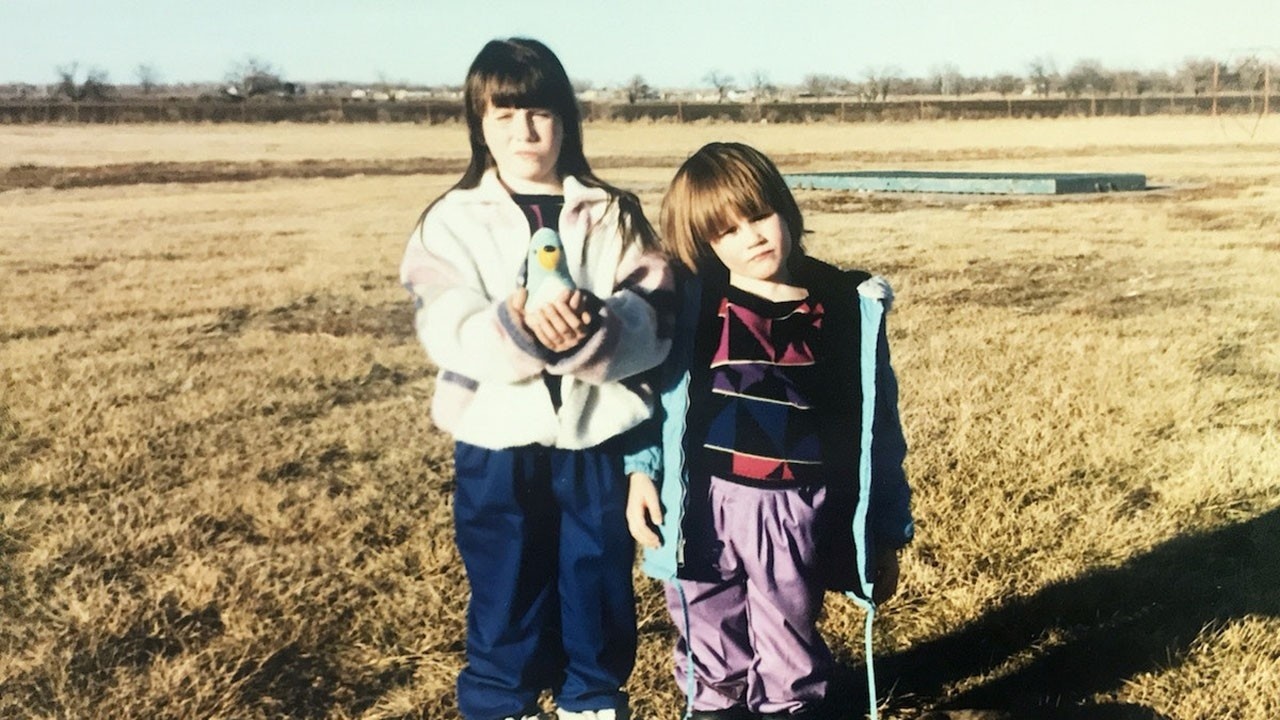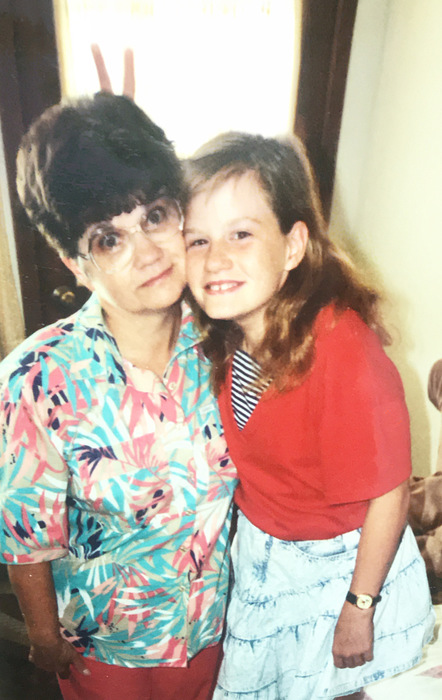Commusings: Newly (Un)broken with Adra Benjamin
Mar 07, 2021
Hello Community,
Two years ago, when Commune was just out of the crib, crawling around the living room bumping its head, I received an unsolicited email. When I founded this enterprise, I made a promise to read every “real” missive sent to me. If someone was going to invest the time in writing me, then I would endeavor to honor it given that, evidently, time is all we have.
This particular email stood out against the cluttered landscape of my inbox. It balanced passion and honesty with eloquence and perfect formatting. It culminated:
Simply put: I want to work for you. I'm out to make a difference in the world. My mission aligns with yours - to help others nourish their minds, souls and bodies so they can live their best lives, fully expressed, fulfilling what matters to them.
Fast forward to the pimply adolescence in which Commune now finds itself: Virtually every email you get from Commune is authored by this beautiful human called Adra Benjamin. She is an angel here and we bask in the good fortune of working with her every day.
The brutally vulnerably story she shares with us today is, at once, the exact opposite and the same as mine. This is the power of story — in its telling we see ourselves. This makes us feel less alone. Of course, our company is named Commune for a reason.
I am here at [email protected] and you know I will read it.
In love, include me,
Jeff

Newly (Un)broken
by Adra Benjamin
I had a refuge once: grandma. A five-foot-short Dutch pillow of a woman. When she said yes – yes, I could have another popsicle; yes, I could go play outside – she often punctuated her answer with “honey.”
“Yes, honey,” she'd say.
And sometimes I got an “Of course, honey.” And that was the sweetest kind of yes because it told me that I was home with her. I didn't have to ask permission; it was already given in her love for me. Her food was my food. Her yard was my playground.
She was my mother when my own couldn't be.
I was nine-years-old when my mother remarried and we moved down a state, Kansas to Oklahoma, to live on a farm. The day we drove away from grandma's house in Wichita, that old brick ranch just a few miles from the Taco J's we'd stop at after swim lessons, I clawed at the back seat cushions, a little animal desperate to escape.
Grandma stood on her front porch, waving at the car, until I couldn't see her because we’d turned the corner and then she was gone. Tina Turner belted out, “What's Love Got to Do with It?” and I screamed the lyrics because I didn’t have any words of my own. When the song ended, I sank down in the backseat and sobbed inconsolably.
My older sister sat, quiet and unmoving, in the front passenger seat.
My mother told me to calm down. But calming down was the last thing I wanted (or needed) to do. I wanted my grandma back. I wanted my home.
⚬ ⚬ ⚬
GONE isn’t just any word. It’s weighty, razored. Especially for a child.
We can experience loss and grief at such a young age that we don't know what to do with it, especially if no one helps give voice to what we’re experiencing. Or if we feel like no one really cares. That day in the car, I wanted to be quiet like my sister. To not feel anything at all.
If I didn’t care, then it couldn’t hurt.
When I was twelve years old, my mother packed my sister and I in the car and drove to Elk City, a small town in Western Oklahoma. My dad met us in the parking lot of the motel.
The whole ride there, I was eager to see him because I had a foolproof plan: I was going to go to Arizona and never come back. I just had to prove to him how good of a girl I was. Show him that I was worth keeping.
Our hello’s were fast and awkward. My sister and I hadn’t seen much of him since we moved. It was like he was dad, but he wasn’t dad. I hadn’t expected to feel so weird about him, and I felt weird that I felt weird. Mom shuffled our bags to the sidewalk and turned to leave, her car keys jangling at her hip, and I don’t know why I did it, but I lunged at her legs and wailed for her to take me with her.
Dad’s face said it all: he was so disappointed in me. Mad. Ashamed. I unlatched from my mother’s legs, dried my tears, and walked back over to him and my sister, quiet again.
After mom drove away, dad asked if we were hungry. The evening stretched long. Dad didn’t know what to say, and I didn’t want to make it worse. My sister sat in the booth, stirring the straw in her Dr. Pepper, just staring at the ice cubes as if there was nobody home in her head, her gaze glued to her pop.
I kept looking at dad to make sure he was really there.
That night as I lay in the bed next to my sister, our dad snoring across the room, I told myself maybe I hadn’t messed everything up with my tears. Maybe I could still show him how good I was. That I could be a daughter he’d keep. I had to try.
The next day, we drove the long and hot road to Arizona to the small apartment with its yellow-stained kitchen and my stepmom and two younger brothers, and one look at the place told me they didn’t have any room for me. After that, I spent most of the time at the pool, diving into the shallow end, making my dad angry with my carelessness. But I secretly relished in his attention, even if he was shouting at me to stop, warning me that I could break my neck.

I was fifteen the last time I saw my father before The 10-Year Radio Silence, as I refer to it like a nice, proper chapter heading. It was my sister’s high school graduation, and he came. He actually came. All.The.Way.From.Arizona. This was huge. Here was my second chance.
Since moving away from grandma, I spent six years getting good at wanting someone to love me but going without any real affection. I gained weight and turned to shopping in the boy’s section of JCPenny. The baggier, the better. These were clothes big enough to drown in.
But the dress I wore that day was too-tight, one stressed button too small, but it was the prettiest I had. I curled my hair, even put on makeup. After the graduation ceremony, families milled around in the rec room, happy and hugging—but mine was livid that my dad was there. And that I was talking to him.
“I could come live with you,” I said, after working up the nerve.
But soon, my master plan to move in with him was whittled down to, maybe, my visiting for the summer for a week or, maybe, two. It was something, and I clung to it. “Okay,” I said, hopeful. I wanted so badly to belong with him. To be his daughter.
He told me he’d call me on Monday, and we’d figure it out together. What a word: together.
After school on Monday, I climbed into the fat-armed La-Z-Boy chair with the landline phone in my lap, the cord curling down my bare, chubby summer legs. I waited for hours, staring at the phone, willing it to ring.
Mom emerged from her cave of a bedroom, yawning, to find me still in the chair, the phone asleep on my lap, the clock flipped to Tuesday.
“I don’t think he’s going to call,” she said, placing a hand on my shoulder.
For the next ten years, whenever my friends talked about their fathers, I’d sit in silence and hate myself for being jealous of them.
⚬ ⚬ ⚬
For the longest time, everything—and I mean everything—lived inside a story I titled Something is Wrong with Me.
-
He didn’t call. Because of me. There’s something wrong with me.
-
I didn’t get into grad school. Because there is something definitely wrong with me.
-
I've gained more weight. Seriously, what's the matter with me?!
This was my life: an unforgiving cycle. One all-encompassing story, and all the proof I’d ever need that it was true.
In childhood, we don’t have the cognitive or social-emotional skills to understand the world without putting ourselves at the center of it. So, when something happens, we naturally make it about us. We make it mean something about us. Something bad, something wrong. It’s our way of grasping for answers so we can understand how to keep ourselves safe.
I’ve come to believe that the first traumatic event from childhood, or the Original Incident as Mastin Kipp calls it, is what makes this over-protective aspect of survival come alive in us. Before that moment, we were little beings with no sense of harm. Perfect and safe, living in a world where words like gone or bad don’t exist.
Fact + Meaning = Fiction
This make-sense-of process happens so quickly, we don’t even realize we’re doing it. You can just chalk up that last disagreement with so-and-so as further proof that [insert story: "I don’t matter" or "People always lie."].
There is fact, and there is fiction.
And they are not the same thing.
-
He didn’t call. Fact.
-
Because something is wrong with me. Fiction.
Knowing and being able to distinguish the difference between “things that happen” and “what I made it mean” is still new to me—I learned about the cycle of stories on exactly the same day I talked to my mom for the first time in five years, no coincidence. It was February 2019, days after my birthday. I sat in my idling car in the empty parking lot of a King Soopers grocery store, the heater on. She picked up even though she didn’t recognize the number.
I asked her to forgive me. I told her how I spent all those years since leaving grandma just blaming her for everything that had gone wrong in my life. She could never do anything right, and I apologized for how I intentionally sought to hurt and punish her by not speaking to her for so long.
And she said, “Of course I forgive you. You're my daughter. I love you. I just want to have a relationship with you.”
That’s the thing about stories: Once you see you’re inside one, you also see the door. And you can leave.
Here are a few things that help me keep facts from becoming fiction:
- Listen more intently. When I’m with someone, I pay extra-close attention to them. I listen intently, even repeating words or snippets of their sentences back to myself in my mind to stay in the actual conversation. This keeps me in the present moment, focused on the literal words they are saying and not the fiction my mind is so skilled at crafting. The key is to NOT add anything to what’s being said. I am simply there, listening.
- Remind yourself that it’s not about you. Because 99.9% of the time, it’s not. That funny face he just made is probably-definitely not about you. Maybe he was just thinking about how he still needs to puppy-proof the back fence.
- Stay as neutral as possible. Remind yourself, “This doesn’t mean anything.” Because it really doesn’t have to. Whatever conversation or interaction you’re in doesn’t have to be further proof of a story that your pain, for example, wants you to believe. A Course in Miracles teaches this, too: that it is essential to learn to recognize the meaningless and accept it without fear.
- Stay curious. Curiosity is the master-key for getting untrapped from a story. For staying present, keenly in the now. When I show up with curiosity, I cannot show up with judgment. It’s some law in physics, I’m pretty sure.
- Ask Q’s. Stay genuinely interested in the other person and not your version of them, or who you expect them to be. Expectations are premeditated resentment, after all. By being curious, I learned my mother wanted to be a doctor when she was younger. I had no idea. Never even thought to ask when I was too busy making her wrong.
- Pay attention to your body. Sometimes an emotion like anger or frustration, fear, sadness, and even anxiety arise in me: always a pinching in my gut. A constriction. I check in with the sensations and feelings immediately when I notice them as they serve as ringing bells that alert me to pay closer attention, because chances are I'm feeling how I'm feeling because of something I'm making up or have made up.
- Fact check, rigorously. I ask myself two questions in this order: (1) What actually happened? (The answer will usually be super short because it's based in fact, e.g. He ate the leftovers.) And (2) What did I make that mean? In other words: what fiction did I create? That he doesn’t love me, and he’s a selfish jerk. This is a great practice to do during conversations if you start to feel upset, or as a daily ritual before bed. Who, when, where, what was said? Anything added, subtracted, or changed is, you guessed it, fiction.
- Meet your own needs for love. At the end of the day, we all just want to be loved. And when we expect it from external sources, it can be fickle. And we can never fill up on enough of it. But when you are your own source of unconditional love, then you’ll be less likely to "feed the stories."
- Oh, and remember you’re human. Give yourself grace. Enough said.
Separating fact from fiction has helped me heal. It’s such a powerful, sigh-of-deep-relief skill to have.
I also see now that if I am going to add meaning to things, which is a human part of me that will always exist, I get to choose what that meaning is. I get to see the fact as the fact, and then choose to attach a view or thought that best serves my well-being: I am loved. I am whole and worthy. Life is beautiful. People are kind and wonderful. This is the best coconut yogurt I’ve ever had.
Another win: I can now view the past and all those in it, especially myself, through a lens of compassion and love. He didn’t call = He didn’t call. Nothing less or more than that. And that teenage girl who sat for hours waiting for the phone to ring is still very loved, always loved, definitely keepable.
I can now also see my parents as, gasp, human beings. Real people. People with their own unhealed pain. People deserving of grace. And I know they love me. They've shown and told me repeatedly.
Summer of 2019, my dad drove 15 hours straight from Phoenix to Denver to check on me (and probably the locks on the apartment) when I was in the middle of a divorce (that we would later cancel for all the best reasons, but that's another side of my soul to bare another day).
That same year, I flew to Oklahoma to see my mom. We escorted my sister to Oklahoma State to help move her oldest into his dorm and spent time talking about life as if we were simply two friends.
On the last night of my trip, she put on Netflix and I curled up next to her on the couch like I used to do as a girl on movie nights, my cheek pressed against the softest planes of her, life fused from life, and, for one brilliant moment, I felt it, this feeling I’d been searching for all this time, a return to love, absolution and sacrament, all of me there and aware that for the first time ever, I didn't want anything about my life to change.
Adra is a member of Commune’s marketing team, our resident in-house wordsmith, and a cheerleader for courageous living and honest communication. She studied poetry and creative writing at Oklahoma State and is currently working on a young adult novel. She lives in Colorado with her husband and two cats, Cora and Penny. You can follow or message her in the Commune community.
Grandma with eleven-year-old me:

Leading teachers, life-changing courses...
Your path to a happier, healthier life
Get access to our library of over 100 courses on health and nutrition, spirituality, creativity, breathwork and meditation, relationships, personal growth, sustainability, social impact and leadership.
Stay connected with Commune
Receive our weekly Commusings newsletter + free course announcements!


